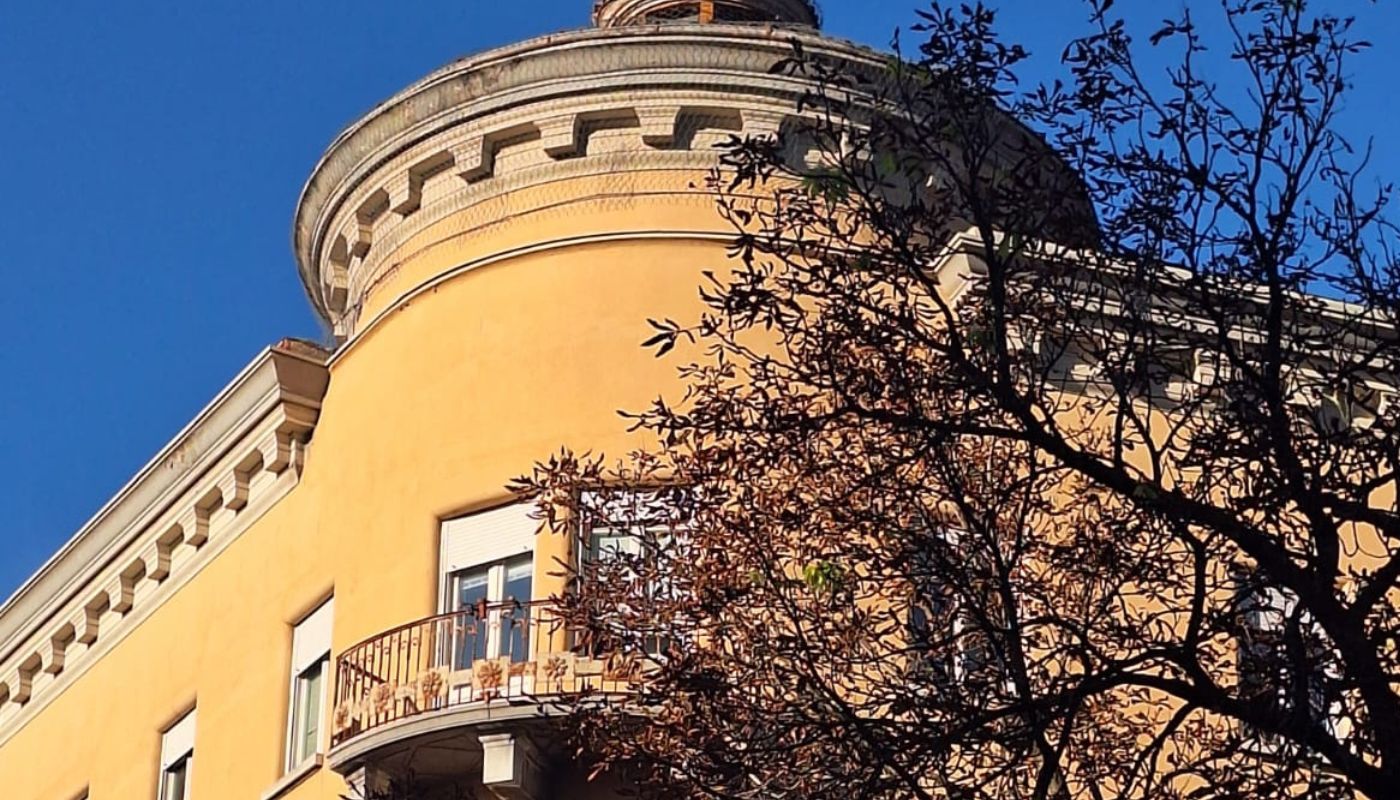
LETTER TO GORIZIA
by KATARINA VISINTIN
Dear Gorica,
I’m writing to you after taking a guided tour of Rashtel. They told stories of people who have always lived there, worked and persevered with their small shops, workshops, memories. I walked through the old streets, which have come to life again today. And that’s when I realized how mentally rich and still alive you really are. Gorica… If only everyone knew what you’re hiding.
I didn’t really know you as a child, but in recent years I’ve started to discover you differently, from the inside, slowly, during everyday errands and walks. I’m now in my fourth year going to university here. And yes, you get on my nerves sometimes, especially when I can’t find parking (hopefully free). But then, when I leave the car somewhere and step out onto the street, something changes. When I walk along Korzo, along Verdi Street, across Travnik, along Raštel to the castle, past bookshops, shops, and café tables, you are suddenly simply beautiful… and always somewhere identical.
Gorica, there’s something contradictory about you. You are calm, almost reserved, and at the same time you know how to be open, bright, full. Sometimes I feel like you’re in a silent dialogue with yourself. But that’s also your beauty. Hidden in wounds that you may never have healed, in the townspeople, some particular, some lively, or simple and peaceful, some polemical; in the streets that fill up again in the embrace of renovated palaces, in the squares that have come to life again. Your walls carry layers of different truths, your boards of multiple languages, your people have multiple memories that often don’t add up. And it all breathes together. Time goes on, and yet with you it seems that every step carries with it the past. Sometimes I wish I had been more courageous.
You are a city with a rich culture, with a long history, with all kinds of stories, with different people, a crossroads of cultures and languages. You are a city that has survived the border, the war, the silence, the oblivion. And if there’s one thing that’s true, it’s that you’re still here, now with your sister Nova Gorica, the European Capital of Culture. For a long time they had lived on their own side of the border, now they walk towards each other, reservedly, cautiously. They may be like charcoal after a fire: calm at first glance, but if you touch it with your palm, you feel the heat still smoldering. Not dangerous, not hostile. One of those warmths that reminds us that something was once burning here.
Gorica, there is something very human in your silence, something that does not seek attention, but carries weight. Your contradiction is not a weakness, it is a strength. You are proof that a space can remain an unanswered question and a home at the same time. That history can smolder and yet leave room for something new: for encounter, for coexistence without fusion, for closeness without renunciation. And maybe that’s your job. Not to forget, but to teach how a border can become a place of peace. To show how to live with wounds, how to coexist in mutual respect, how to sit in a square, between two cities, and know that you are home.
But you know, Gorica, I’ll be honest with you. Sometimes you’re heavy, not like a burden, more like something that doesn’t know where it belongs and what to walk towards; like a place that walks on tiptoe, maybe because it’s afraid of disturbing someone, maybe because it’s too hard to cope. It seems to me that you have lived from memory for a long time, and that the future scares you a little more. Sometimes I wonder if your attachment to history isn’t also a trap, as if you’re clinging to your wounds to justify silence, as if it’s easier to tell than to live.
And while we are resurrecting, restoring, preserving what is right and necessary, we forget to look ahead.
Let us forget that the future is something that is being built now, that it is borne by those who are not yet written in books, who do not yet have monuments or streets named after them. It is carried by us young people, in whom you must trust, in whom you must believe. Perhaps the question should be asked differently at some point: not only what have you already been, but what else can you become? Who are you willing to open up space for? Who are you willing to listen to? Are you ready to lend a hand to intergenerational dialogue? If you want to be a meeting place, then be not only between cultures, but also between generations. Be not only a guardian of memory, but also a companion to those who look to the future.
It’s not about reproach, it’s about hope. To dare a little more. To be not only a place where history is talked about, but also a place where the future is felt, not as a distant promise, but as something that is happening now.
Gorica, you’re not perfect, and that’s why I love you. Because I know you’re sincere in your indecision. Because I know you’re silent but present. Because I know that you are capable of being a place of contradiction and therefore a place of encounters.
I trust you.
Prvotni jezik tega članka je slovenščina.

